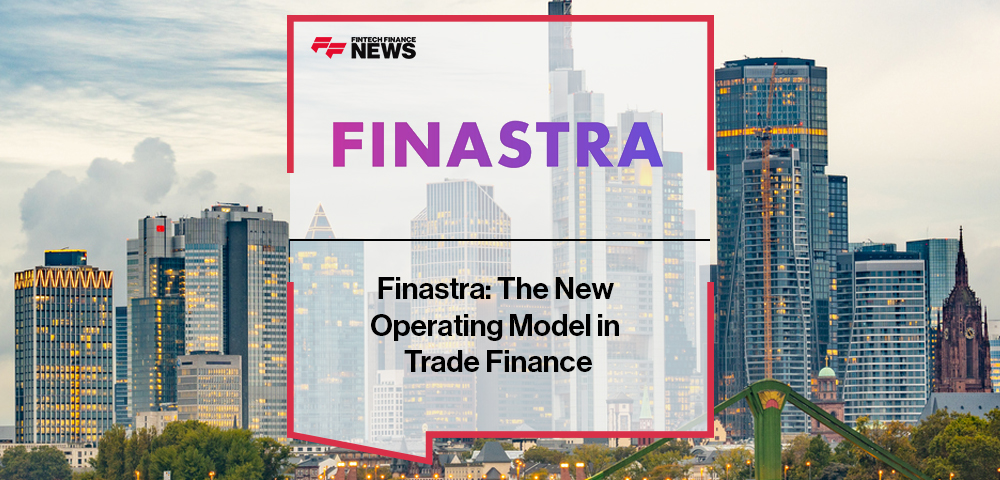Business
Finastra Unveils New Trade Finance Model at Sibos 2025

Finastra has introduced a new operating model for trade finance, as discussed by Matthieu Andrieu during a recent interview at Sibos 2025. The shift is primarily driven by evolving regulations and increased acceptance of fully digital documents. Andrieu, who has two decades of experience in the field, highlighted that several regions, including France, Germany, the United States, Abu Dhabi, and parts of Southeast Asia, have enacted regulations that give electronic trade documents the same legal status as traditional paper documents. This development is propelling the industry away from manual processes toward more efficient digital workflows.
As banks adapt to these changes, they are required to rethink their operational models, controls, and the skills of their workforce. While progress in Africa and South America is slower, Andrieu anticipates that these regions will also evolve as their legal frameworks develop.
Customer experience in trade finance has historically lagged behind that of retail banking. For years, financial institutions concentrated on back-office automation, neglecting the front-end user experience. Andrieu noted a surge in demand for more corporate-friendly digital channels, including mobile applications, chatbots, and particularly generative AI. These tools aim to simplify processes and provide clarity on status updates, exceptions, and required documents for clients.
From Finastra’s perspective, over 200 banks currently utilize its Trade Innovation platform. Two main challenges dominate the landscape: The first is the necessity to stay abreast of regulations and best practices. This includes the transition to ISO 20022. With the upcoming November 2025 release from SWIFT, many banks must migrate from MT to MX messaging formats. The second challenge involves adopting an ecosystem mindset. Rather than relying on a single vendor, banks are encouraged to establish a network of partners, making open APIs crucial for enhancing speed and fostering co-innovation.
The role of cloud technology is also pivotal. Most Western financial institutions are now prioritizing cloud solutions as part of their shift towards managed services. This transition allows banks to delegate more operational responsibilities—such as maintenance and upgrades—to service providers. Consequently, banks can focus on differentiating their offerings in a competitive market.
At Sibos 2025, Andrieu introduced “Nexus,” Finastra’s latest initiative designed to facilitate collaboration among banks and partners in the realms of AI, machine learning, and blockchain. This new orchestration layer operates atop Finastra’s corporate banking stack, enabling faster experimentation without the need for a complete overhaul of existing core systems.
As the trade finance sector continues to evolve, Finastra is positioning itself as a key player in driving digital transformation and enhancing customer experiences across the industry.
-

 Entertainment3 months ago
Entertainment3 months agoAnn Ming Reflects on ITV’s ‘I Fought the Law’ Drama
-

 Entertainment4 months ago
Entertainment4 months agoKate Garraway Sells £2 Million Home Amid Financial Struggles
-

 Health3 months ago
Health3 months agoKatie Price Faces New Health Concerns After Cancer Symptoms Resurface
-

 Entertainment3 months ago
Entertainment3 months agoCoronation Street’s Carl Webster Faces Trouble with New Affairs
-

 Entertainment3 months ago
Entertainment3 months agoWhere is Tinder Swindler Simon Leviev? Latest Updates Revealed
-

 Entertainment4 months ago
Entertainment4 months agoMarkiplier Addresses AI Controversy During Livestream Response
-

 Science1 month ago
Science1 month agoBrian Cox Addresses Claims of Alien Probe in 3I/ATLAS Discovery
-

 Health4 months ago
Health4 months agoCarol Vorderman Reflects on Health Scare and Family Support
-

 Entertainment4 months ago
Entertainment4 months agoKim Cattrall Posts Cryptic Message After HBO’s Sequel Cancellation
-

 World2 weeks ago
World2 weeks agoBailey Announces Heartbreaking Split from Rebecca After Reunion
-

 Entertainment3 months ago
Entertainment3 months agoOlivia Attwood Opens Up About Fallout with Former Best Friend
-

 Entertainment2 weeks ago
Entertainment2 weeks agoCoronation Street Fans React as Todd Faces Heartbreaking Choice





















